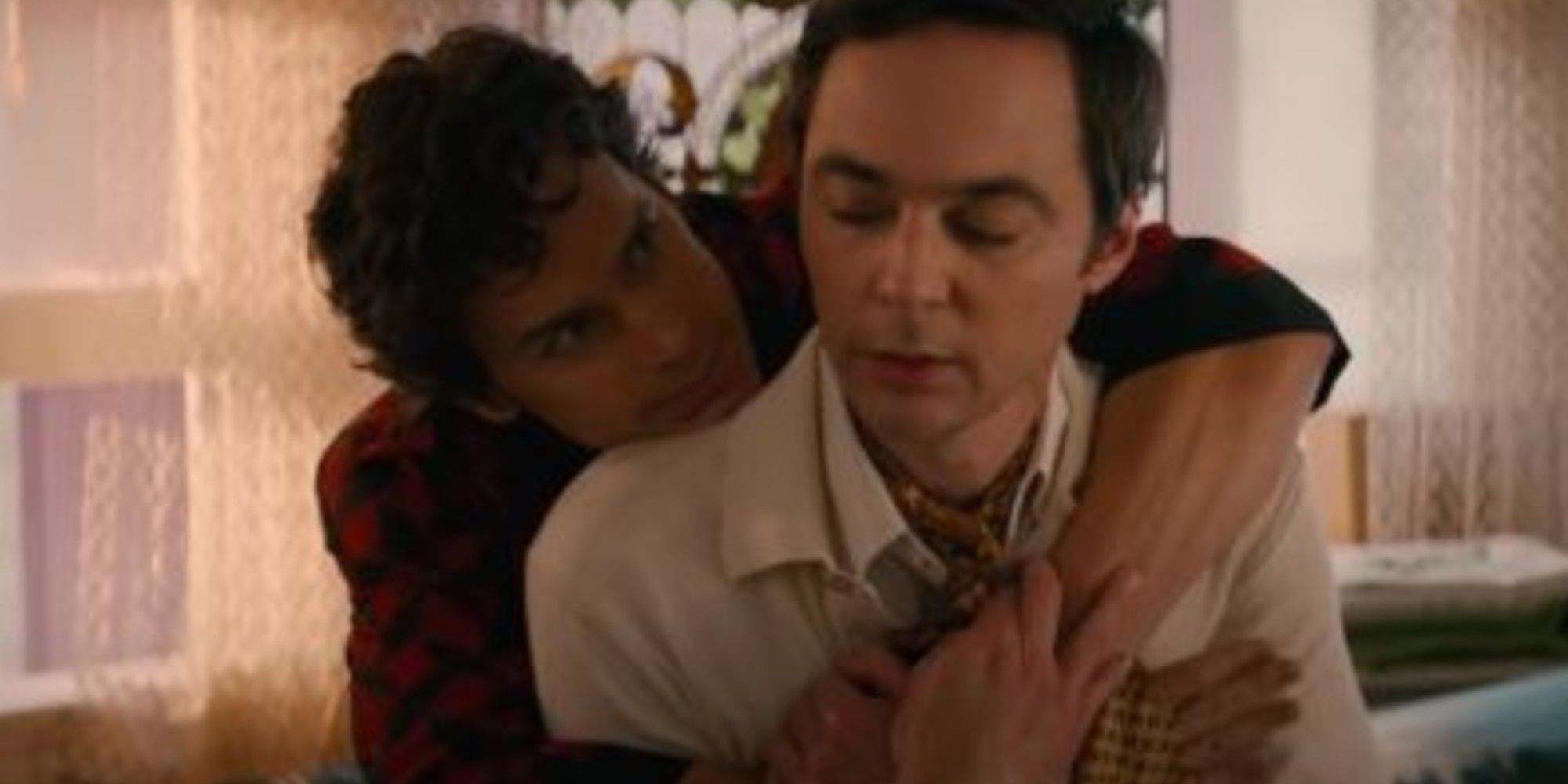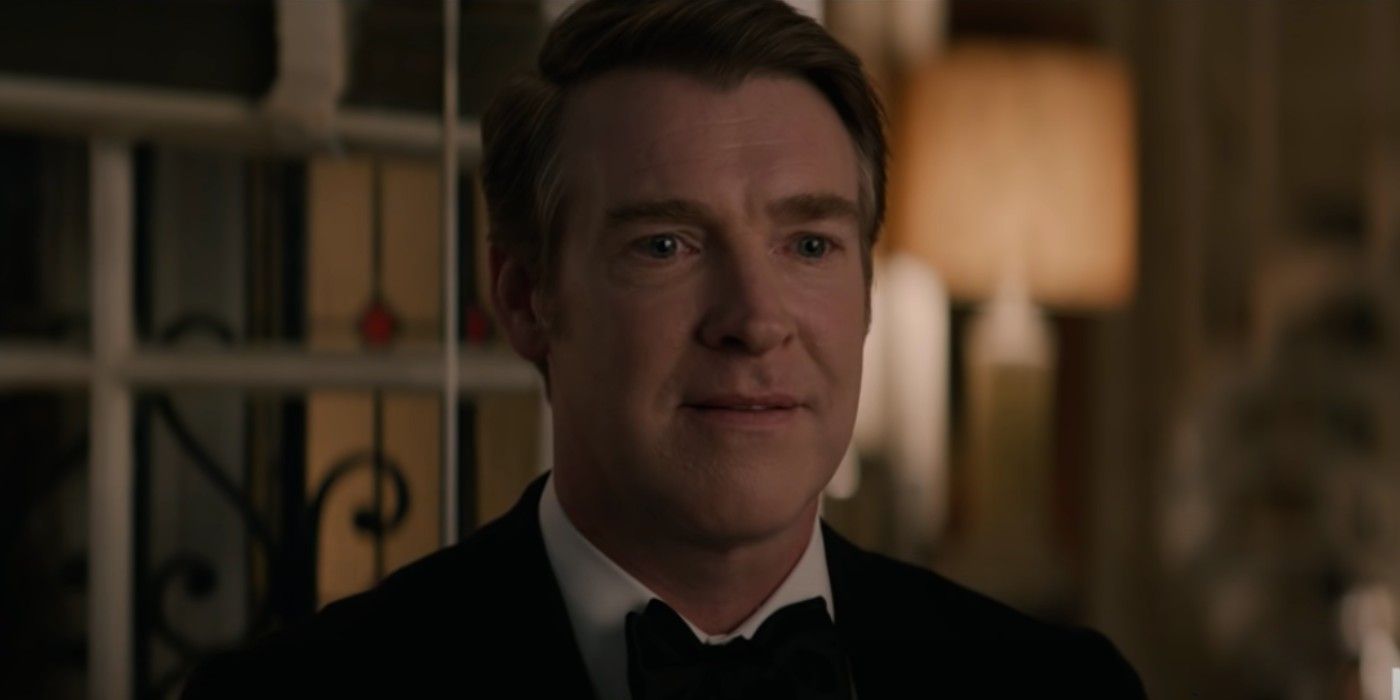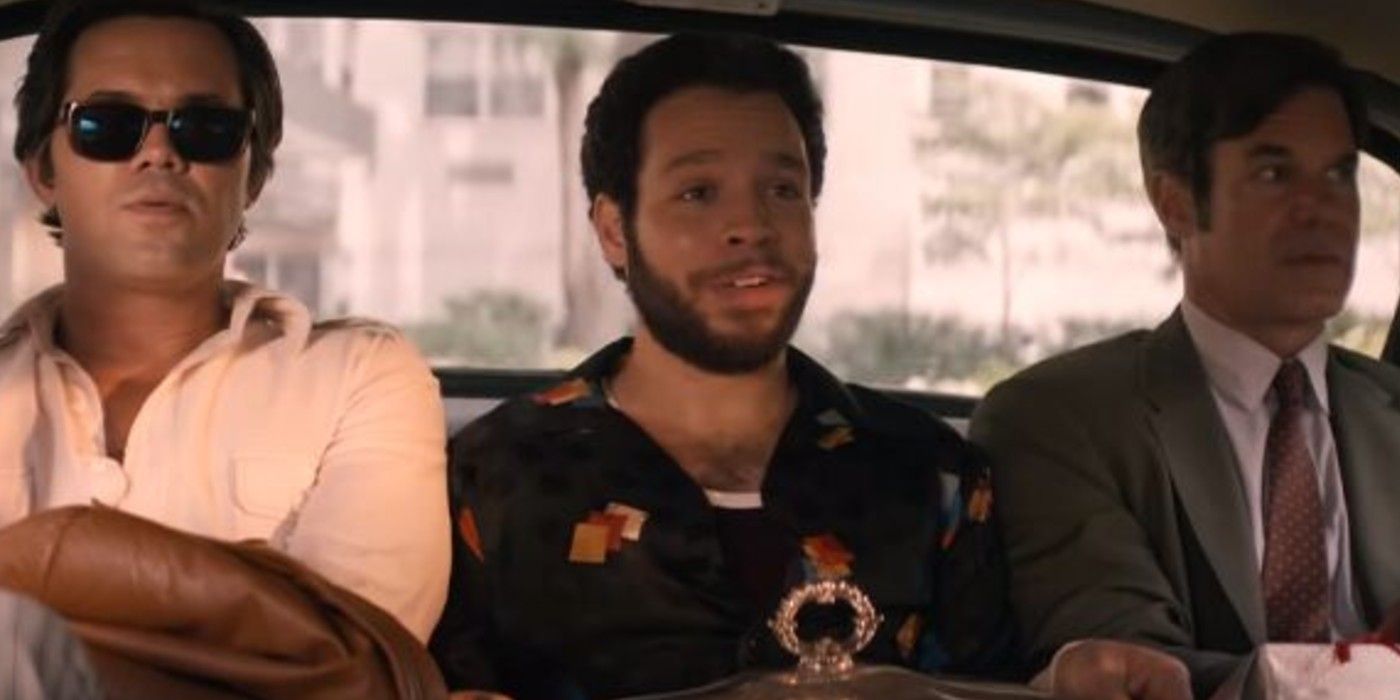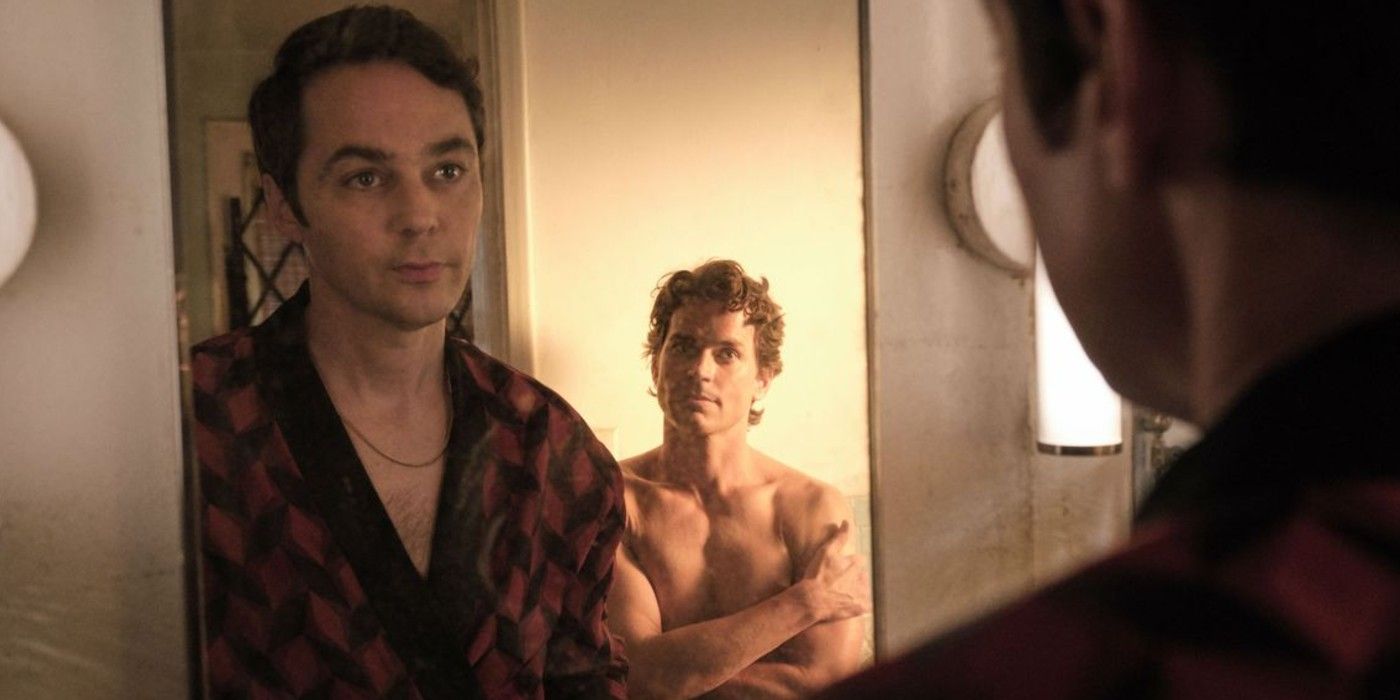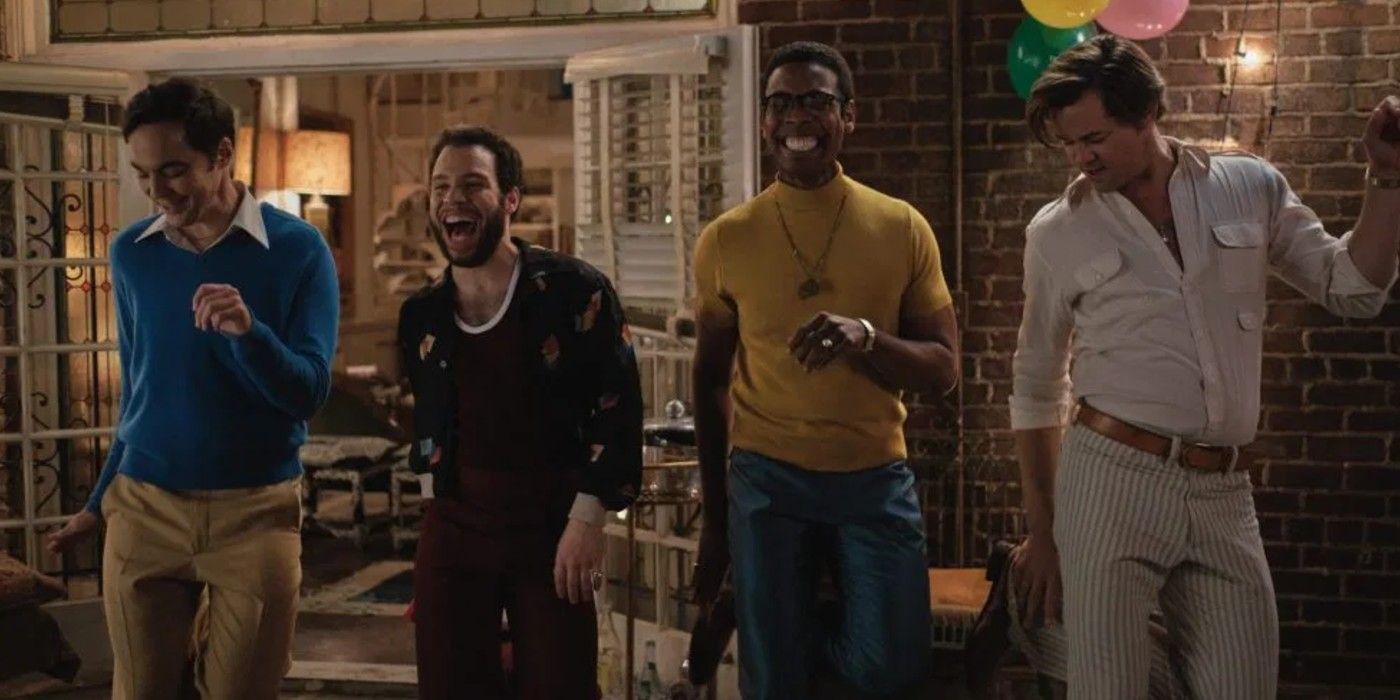Summary
- Netflix’s Boys in the Band represents a pivotal moment in queer theater, exploring important ideas in a time capsule story.
- The film delves into trauma, pain, and self-acceptance among complex, flawed characters, challenging stereotypes and promoting solidarity.
- Despite showcasing the struggles of the past, the film ultimately focuses on the universal themes of pride and acceptance in one’s identity.
Netflix’s adaptation of Mart Crowley’s challenging, transformative play, The Boys in the Band, remains at the heart of a pioneering moment in queer theater. Ryan Murphy brought it to the platform, and it explores some deeply important ideas. At its heart, it is a time capsule story, exploring truths tied explicitly to their context, that may prove difficult to watch in 2020. The Boys in the Band follows nine main characters – Michael, Donald, Harold, Bernard, Emory, Larry, Hank, Cowboy, and Alan – coming together for Harold’s birthday party.
Seven know each other pretty well, while Cowboy is a sex worker and birthday present, and Alan is an uninvited guest whose apparent heterosexuality threatens to derail the party. Every other character – played by openly gay actors, including The Big Bang Theory‘s Jim Parsons and Zachary Quinto – is gay, and the suggestion that Alan may be wrestling with his sexuality is at the center of an implosion that turns the party on its head. The Boys in the Band reflects the pre-Stonewall, pre-AIDS, pre-freedom era. A lot of questions emerge by its end.
Related
30 Best Movies On Netflix Right Now (July 2024)
From Godzilla Minus One to Under Paris and The Gentlemen, here are our picks for the best movies on Netflix for everyone to enjoy this month.
What Happens In The Boys In The Band Ending?
A Phone Game Makes Things Get Ugly
The Boys in the Band spends most of its running time in one room with a group of friends and a party that turns sour after a little too much drinking and a lot of bad attitudes. What really makes the party fall apart is Alan arriving, the only straight person at the party. However, this leads them to wonder if the married Alan might be questioning his sexuality and if he might be ready to come out at this party. This leads Michael to suggest the phone game, where they all call someone and confess their feelings.
The Boys in the Band
stage play debuted in 1968
Sadly, this turns bad as it features at least two moments of ugly racism and ends when Michael tries to force Alan to come out to them right there on the spot. They try to make Alan call an old college friend, Justin, who they think he has unrequited feelings for, but Alan tricks them. He calls his wife instead, tells her he loves her, and then leaves. Everyone then leaves the party, and Michael delivers the line that haunts most people who watched the movie and play, as he says he still doesn’t understand anything.
Why Is Everyone In The Boys In The Band So Hateful?
These Friends Know They Are All Traumatized & In Pain
From the outset, it’s clear there is a lot of hate in The Boys in the Band. Even though the central characters are very close and develop a bond where the boundary between affectionate ribbing and outright meanness doesn’t matter, there are still moments where it spills over. When Jim Parsons’ Michael starts to drink, his demons are writ large across his hateful words, including in shocking moments of racism, and he’s far from the only one. Only Cowboy manages to negotiate the party without at least one insult to a supposed friend.
…there is some suggestion of the emotional traumas they’ve been through and the cost of rejection by a world filled with even more tangible hatred.
It’s all about dealing with trauma, and it all comes out in the phone game and beyond that point. As Bernard, Emory, and Hank make their calls, there is some suggestion of the emotional traumas they’ve been through and the cost of rejection by a world filled with even more tangible hatred. As soon as Michael drops his performative host routine and slips back into his self-medicating with alcohol, his trauma and anger at a society that hates his very existence turns into caustic mistreatment of his friends.
Harold, who loves him more than anyone else, calls him out as the worst type of person, “a self-hating homosexual who wishes he wasn’t gay,” but the point is he follows it up with “I’ll call you tomorrow.” The affection exists there – just as it does between them all, even after their most hurtful exchanges – because of their shared experience.
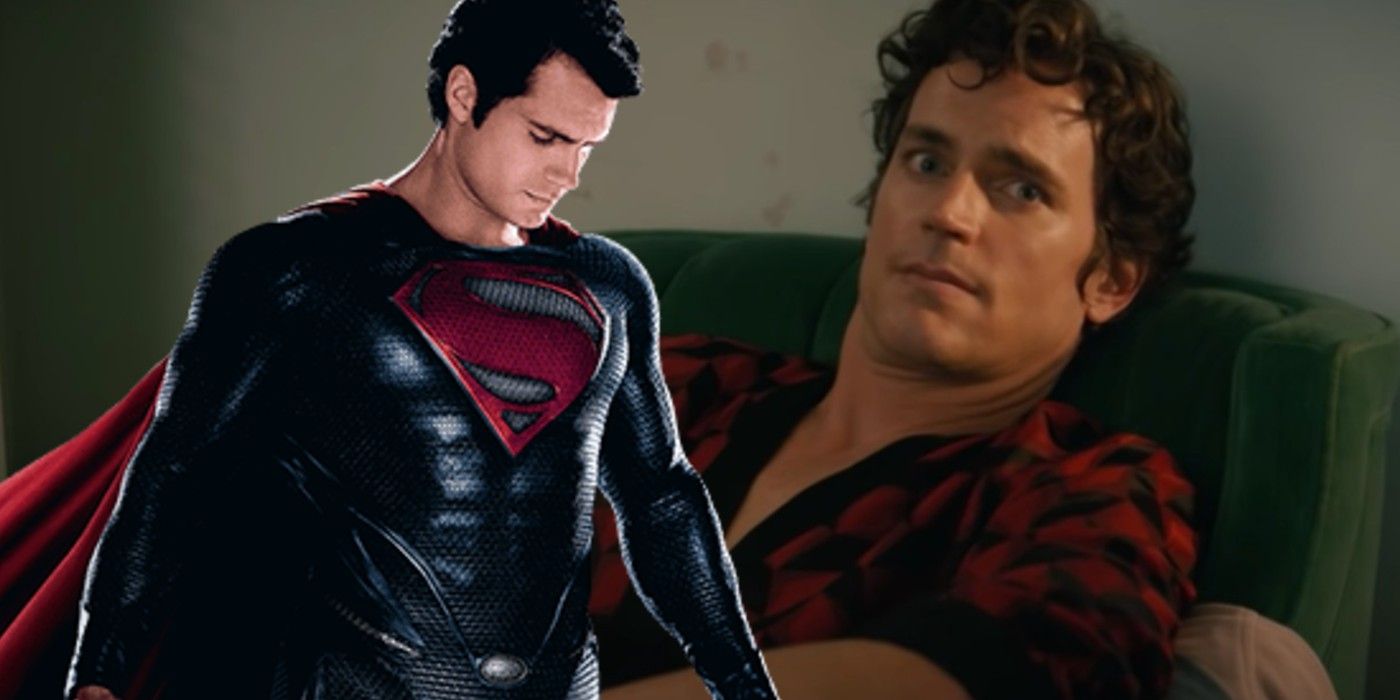
Related
Is Henry Cavill In Netflix’s The Boys in the Band?
Is DCEU Superman actor Henry Cavill one of the stars of Netflix’s new adaptation of The Boys in the Band or is it a famous doppelganger?
The Boys in the Band was always a triumph of representation because gay people on the cusp of the 1970s saw themselves on stage where their failings weren’t because they were gay. Yes, there may be some challenging content in there. Still, this profoundly political story is fundamentally about acceptance and community, and the self-hatred and sanctuary of community are hugely important.
When Emory is challenged about his racist ribbing of Bernard, the latter explains that he allows it because he knows he’s been through his own trauma because of who he is, what he looks like, and how he acts. There’s a beautiful, intersectional comment on solidarity in society that still rings true now, even if the danger of gay and black men being alone is supposed to be removed.
Is Alan Gay? Why Did He Call Michael? Why Doesn’t He Go Home?
Alan Still Struggles To Understand His Feelings In The End
Alan is the film’s most fascinating character because he doesn’t fit. In a microcosm of gay stereotypes – constructed almost the same way an action hero ensemble would assemble different heroic “types” – he is the lone self-professed straight man, wearing his society’s homophobia like a heavy overcoat. But his very existence at the party is the mystery that drives the whole play and the catalyst for everything falling apart, so it begs the question – why did he come in the first place?
Alan is going through something, as his first conversation with Michael confirms. His dinner party plans are a ruse, and he has something pressing enough to tell Michael that he is coming to New York, leaving a scar on his family. He is challenged on his past and his sexuality, and while he seems to bat it away by ringing his wife and telling her he loves her, it’s not entirely clear whether that is because he means it.
The Boys in the Band won the 2021 GLAAD Media Award for Outstanding Film (Limited Release)
It could be that his experience in an openly gay environment and the troubles inherent to self-identifying in a liminal space are too much for him, and his almost brave step of coming out is crushed. Alan, it seems, is the “coming out to an unwelcome society” story personified. That is also why he stays at the party when he has attacked Emory and, crucially, why he doesn’t go home even after leaving the party when he promises to catch the next flight home.
Instead, he seeks solace in a bar, alone, reaffirming that whatever he came to Michael for is not as sewn up as his thanks to the host on his way out seem to have suggested. Is he gay? There’s certainly cause for doubt, but there’s also a lot of evidence to suggest he is what Michael believes, and there’s no stage in the film where Michael’s honesty – often painful and pointed though it is – is anything but the truth. His accusations of Alan’s past are to be taken as testimony, not conjecture.
The Boys In The Band’s Use Of Queer “Stereotypes”
The Movie Rightfully Treats The Characters As Real People
The Boys in the Band may cause controversy among younger enlightened audiences because of the privilege of removal. Hot amongst those concerns will no doubt be the repeated use of limiting, homophobic, and racist words and also the issue of using stereotyped character types. That was something Stonewall era activists took issue with, and such a response would inevitably come out of that time when Stonewall sought only positive representation on screen and stage. But The Boys in the Band isn’t interested in using cliches against the gay characters it presents: it’s more an issue of reclamation of those stereotypes.
It’s not homophobia as much as a reflection of what a homophobic world does to people subject to that abuse.
The movie is a queer time capsule. The play fell out of favor because of fears it promoted internalized homophobia and harmful stereotypes. Dropping in “f words” so liberally and having gay characters criticizing other gay characters in the same terms homophobes use would be conscious. It’s not homophobia as much as a reflection of what a homophobic world does to people subject to that abuse.
If an audience is uncomfortable with the sight of the effeminate Emory or appalled by the promiscuity of Larry and Michael and Harold’s razor-sharp bitching or the limited intelligence but game sexuality of Cowboy, it’s because somewhere, that audience has been told that those stereotypes are not acceptable.The Boys in the Band isn’t interested in saying whether these characters should or shouldn’t act the way they do beyond whether they are good people; they exist as they are, and it is simply a fact.
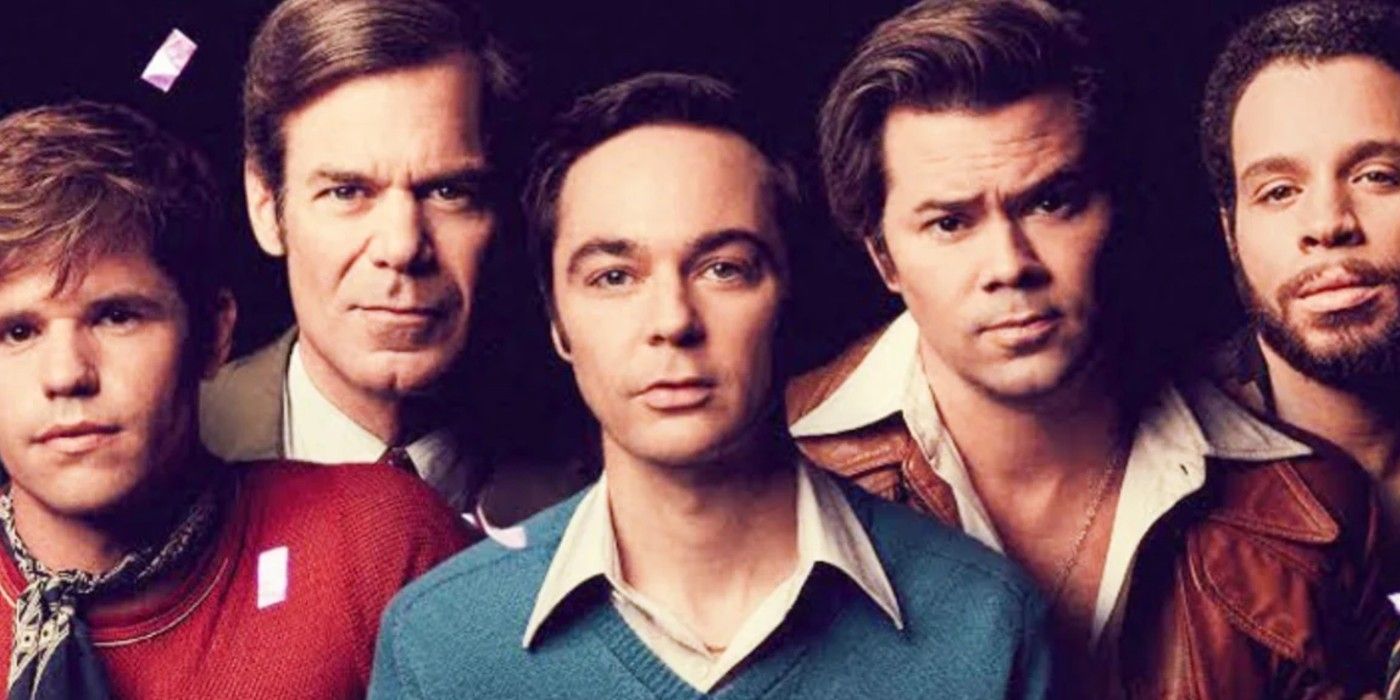
Related
The Boys In The Band Cast & Character Guide
Netflix’s new adaptation of hit stage show The Boys In The Band is packed with recognizable actors, but where have you seen the stars before?
The film – just as the play – is careful to craft a cross-section of gay identities from Emory’s flamboyance through to Hank’s straight-acting machismo and Alan’s potentially closeted sexuality. All are valid, and suggesting they are dangerous cliches is to believe that all the art, shows, and movies that leaned into those stereotypes were right to vilify them.
Instead, Mantello’s adaptation is about reclamation because the identities are incidental, and the story is a hopeful but bruised dream of a world where all of those characters can be accepted regardless of how they choose to express their sexuality. The party, in effect, is a rehearsal for when queer folx will be allowed to be themselves, and on reflection, it is tragic to watch the bubble exist within a wider space that wouldn’t tolerate it or its participants.
Why The Boys In The Band Is Obsessed With Appearances
They Are Afraid Of What People Will Judge Them To Be
A significant amount of the story is concerned with the idea of appearances and perception. Much of the catty barbs are aimed at appearance or intellect as if such an attack is more cutting to someone constantly having to ensure they look right and act right for fear of something bad happening to them. Also, at various stages, characters either talk about or show themselves performing for a straight society, or in Emory and Bernard’s cases, most poignantly, being punished for refusing to.
That idea of a person’s appearance or behavior being armor against subjugation and the hard contrast to how much the group can be themselves within Michael’s haven comes up a lot, because The Boys in the Band is driven at its core by the idea of finding a space for your own identity to be accepted. That’s inherently what the act of coming out is about as well, of course, and it’s not an accident that Hank’s backstory of trying to deceive himself into not being gay plays such a big part of the telephone game.
Alan’s very presence speaks to the same dynamic: Michael anxiously tells his friends they must not appear to be gay in case of some unspoken danger if Alan were to find out. Even within his own haven, his safety is removed because he can’t be himself. In a world where identity pride – and gay pride in particular – is such an accepted luxury, seeing it reflected from a time before is a stark reminder of the privilege of progress. And an even starker reminder that society is not so far away from slipping back there.
What The Boys in the Band Is Really About
It Focuses On What Being Gay Was Treated Like In The Past
The Boys in the Band is a story of contradiction because it speaks to how far the world has come since the society behind the play made gay existence so dangerous and amplifies the moments of pride through proximity. But at the other end, it is a stark, anxious reminder of how close it could all be again, and almost all of its issues still have relevance. This may be a time-capsule movie from the period before Stonewall, the AIDS crisis, same-sex marriage, and all progress.
However, the concerns over homophobia, racism, drug and alcohol use, and mental health issues (deeply embedded in self-hatred in particular) are arguably all still at crisis point. The rise of ultra-conservativism and bigotry masking as “traditionalism” threatens a return to the world of the 1968 original. In that respect, while there is progress, there is also a warning about what could still be. But for the most part, The Boys in the Band is about pride in identity (not just sexual identity, though that’s important).
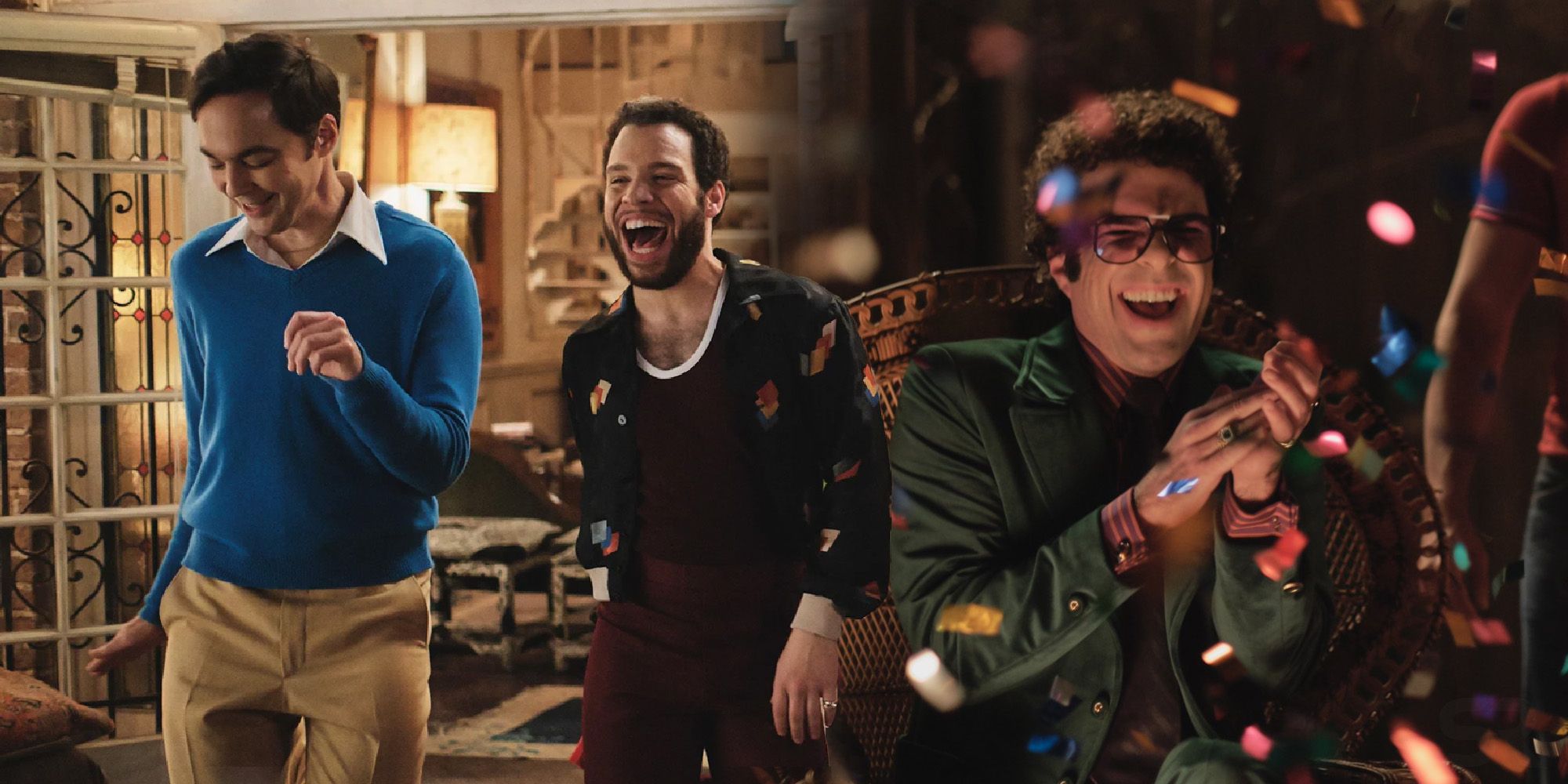
Related
Every Song in Netflix’s The Boys in the Band
The Boys in the Band soundtrack features slow jams and several jazz standards. Here’s a complete list of every featured song in the Netflix movie.
As Ryan Murphy has said, the film speaks to the changed world in terms of how “homosexual behavior” was treated mere decades ago. Back in the ’60s, gay people had their own spaces – they frequently talk about the baths, for instance – but being out in public was not acceptable. There are frequent, subtle reminders of that even though the story mostly takes place in a single room: the woman on the subway sneering at Bernard, the hotel lobby attendant scowling at Emory, Michael’s neighbors pausing to look with disgust at the party through the open door.
Even Hank’s reinforcement of acceptable norms when Emory is “too camp” or Alan’s recognition of Hank as a model of masculinity are reminders. The Boys in the Band is about the cost of rejecting people, the dangers of what that sort of enforced captivity and performative “fitting in” can be, and the value of progress away from that. It might be a time capsule reflecting a specific time – which, incidentally, ought to forgive its discomforting behavioral anachronisms – but its truths and its pride in allowing different “types” of people to exist should be universal.
The Boys in the Band
The Boys in the Band is a 1970 drama film directed by William Friedkin. Based on the play by Mart Crowley, the story revolves around a group of gay men who gather for a birthday party in New York City. As the evening unfolds, underlying tensions and personal revelations surface, leading to emotional confrontations. The film features an ensemble cast including Kenneth Nelson, Leonard Frey, and Cliff Gorman.
- Director
- William Friedkin
- Release Date
- March 17, 1970
- Cast
- Cliff Gorman , Leonard Frey , Peter White
- Runtime
- 2 Minutes



